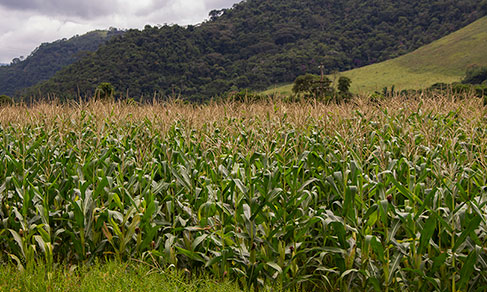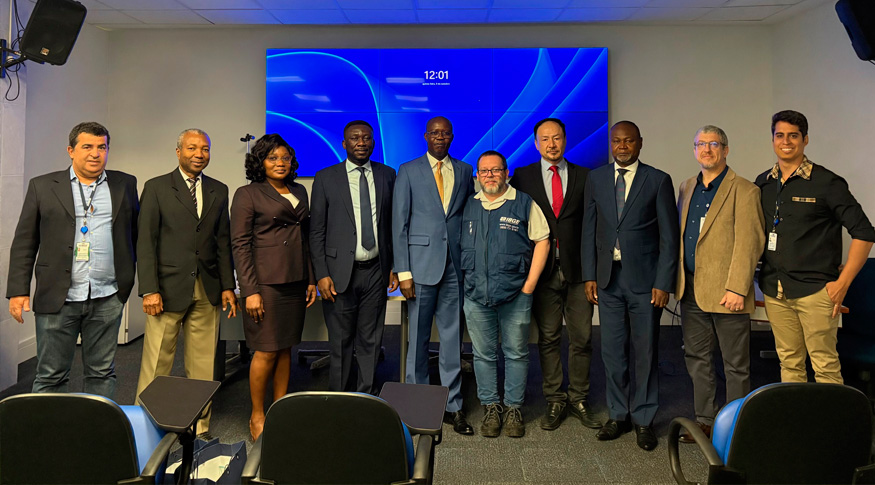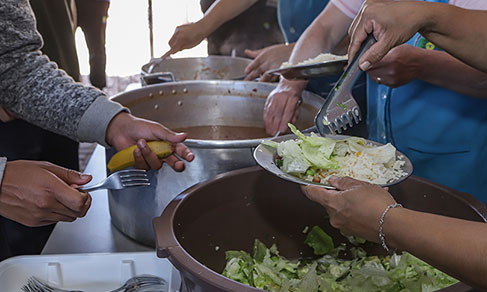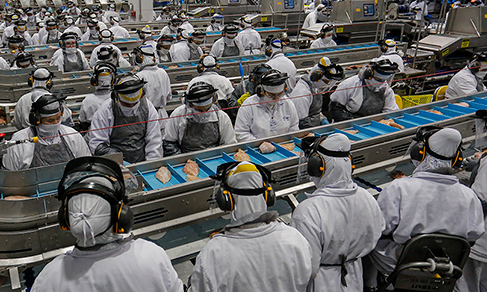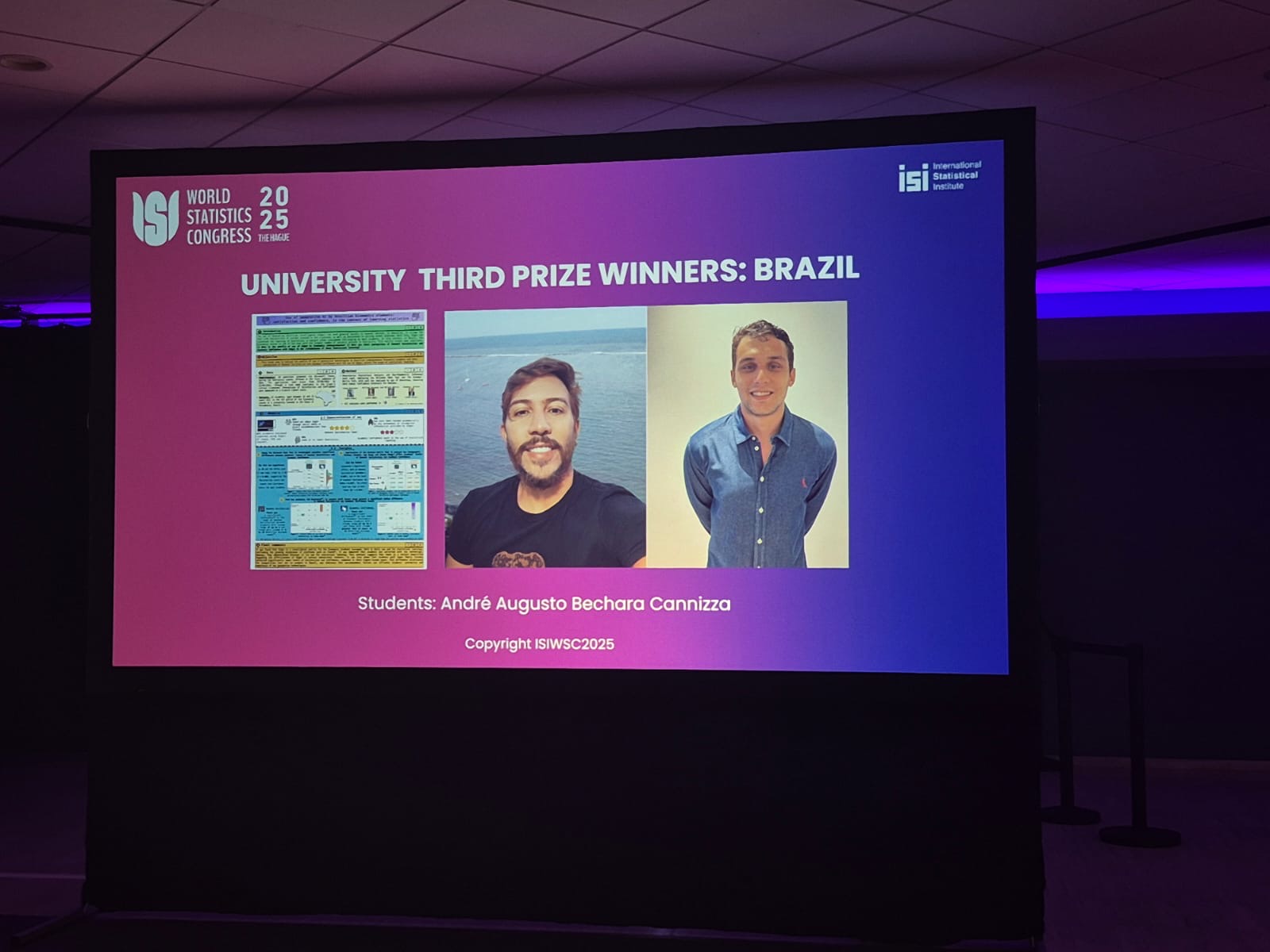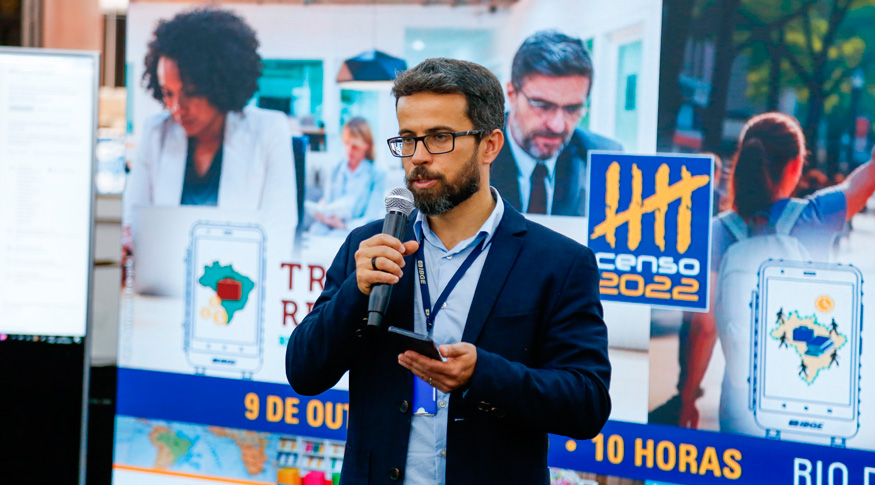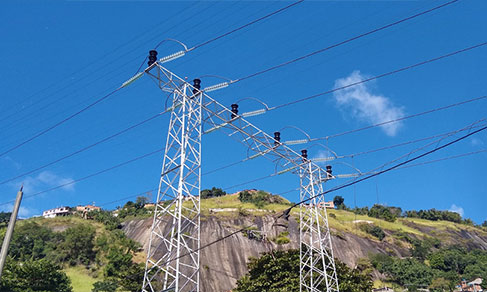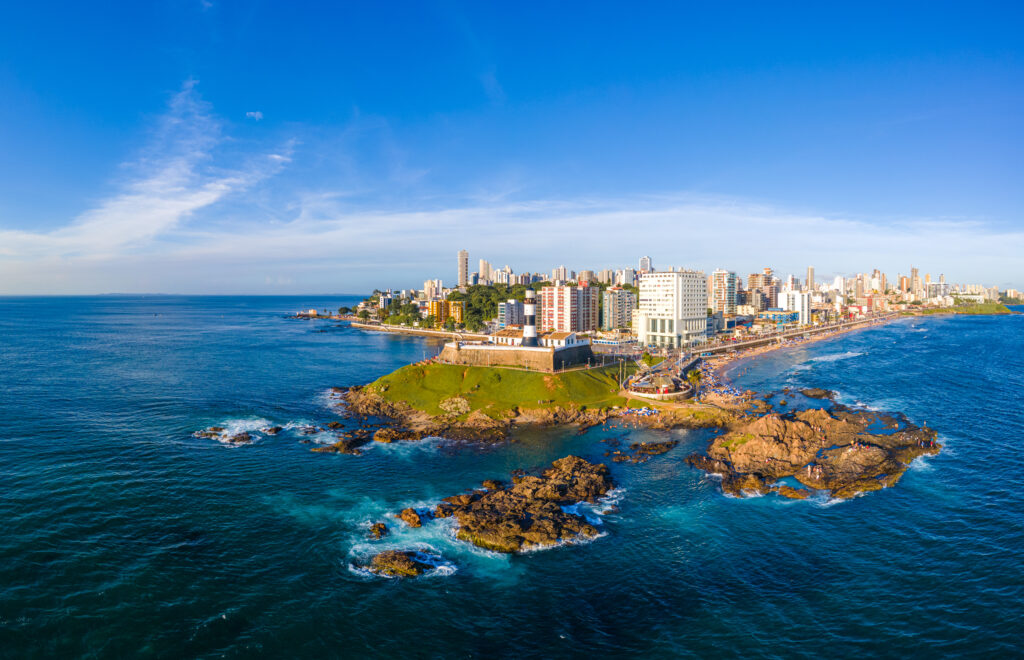Pink October encourages breast cancer prevention
October 13, 2017 09h00 AM | Last Updated: October 18, 2017 11h07 AM
When you see Valéria Amaral smiling in her office, you can hardly tell that she's faced cancer twice. In 2005, Valéria lost her husband due to a melanoma, and she herself, 10 years later, was diagnosed with breast cancer. After the first biopsy result, and the fist chemo sessions, the 47-year-old lawyer had one breast removed; nevertheless, she kept still the whole time. “I am a positive person. I've met many people who defeated the disease, but there were also others that, unfortunately, were slaughtered by it. Most cases are treatable when identified at the early stages”, she says.
In order to give support to people like Valéria and encourage the participation of population in the control of breast cancer, Pink October was created, a campaign idealized in the 1990s in the United States. Today, after three surgeries, Valéria knows that being aware of her body was crucial to the diagnosis and well-succeeded treatment: “As I already had hormonal problems, I used to go for regular physical exams. I"ve always done the three prevention exams: ultrasound, mammography and resonance", she recalls.
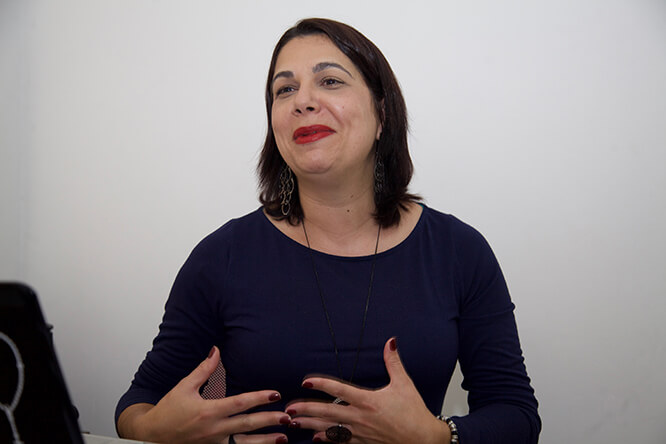
Mastologist and Director of the National Cancer Institute (Inca), doctor Marcelo Bello, recommends that women look for medical assessment whenever they notice any problem. “The screening exam used to detect the disease is the mammogram. The recommendation of the Ministry of Health and of the World Heath Organization (WHO) is for it to be done in the age group between 50 and 69 years old every two years, which does not mean women out of this age bracket cannot do it”, he advises.
According to the National Survey of Health 2013 (PNS), put out by the IBGE last year, 3.8 million women aged between 50 and 68 have never done a mammogram, which corresponds to 18.4% of the female population in this age group. The highest index among the Major Regions comes from the North (37.8%), against 11.9% in the Southeast, which has the lowest rate.
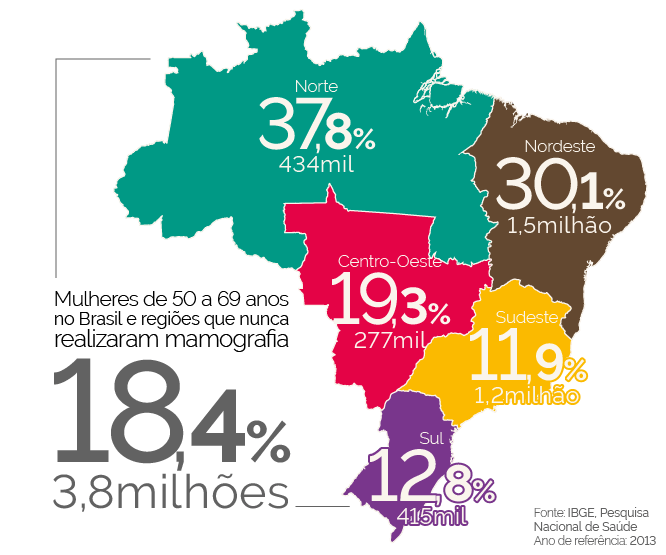
In 2016, Inca estimated 58 thousand new cases of breast cancer, which represents almost 10 thousand more cases than in 2006. According to Dr. Marcelo, breast cancer recovery is not just a treatment, but a set of individual therapy modalities: “Inca masters advanced surgical techniques that allow the preservation of the breasts with good aesthetic results. There are also radiotherapy equipment and techniques that currently can reach for just the breast, preserving other organs and adjacent tissues.”
In its first diagnosis, PNS 2013 shows that, among women aged 18 and over with some kind of cancer, 39.1% reported to have breast cancer. The Southeast is the region with the majority of the cases: a total of 371 thousand, followed by the South, with 110 thousand. Despite the greater incidence among women, breast cancer can affect men as well. According to Inca, 181 men died with the disease in 2013 in Brazil.
IBGE and Inca engaged in the cause
IBGE analyst, Geisa Tavares, found out she had breast cancer in 2003, after routine screening tests: “It is very important to do the periodic exams, because a great number of servants don’t have or cannot afford a health insurance plan. When the establishment you work at offers this chance, it is an opportunity to do it.” The IBGE has an intern policy of health protection for its servnats. Preventive examinations for breast cancer, such as mammograms and Pap smears to detect uterine colon cancer are periodically offered to servants for free.
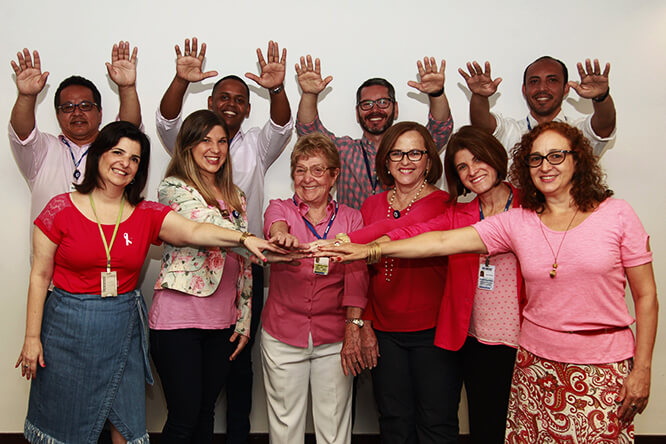
IBGE servants and hired staff: Helga Szpiz, Aline Duarte, Oneide Correa, Geisa Tavares, Ana Paula Argueso e Helena Pontes. Elson Pereira, Rodolfo Nascimento, Cézar Steinhorst and Wagner Durange
With the support of Inca, the IBGE will offer four prevention talks on breast cancer and uterine colon cancer prevention for servants and hired staff, between October 16 and 23, in Rio de Janeiro, besides programs throughout the months in the State branches. “Prevention is important to avoid some myths, like all cancer diagnoses are a death sentence. They are not. There is a cure”, highlights the analyst and manager of Occupational Health and Safety, Ana Paula Argueso.
Text: Diane Dias and Karina Meirelles (interns), supervised by Pedro Renaux
Images and infograph: Pedro Vidal




